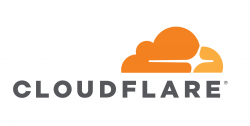GitHub watchers among you will have noticed new branches labelled Allwinner, Amlogic and Rockchip being added to our repo. Here’s a high-level explanation of what’s going on: Extending Kodi to support new SoC/GPU devices requires new code interfaces. In the past each new silicon vendor required their own interface which multiplied Kodi complexity. It became clear this approach was not sustainable so Kodi’s architects called a halt to new interfaces unless open and broadly supported standards were used. This has caused the ‘Kodi on Linux’ hardware scene to be static for some time. On Android ‘mediacodec’ and ‘audiotrack’ evolved into...
Source link
Amazing value for money with the brand-new X96 Mini TV Box for just $26.99 / €22.95 / £20.62 as long as you use the discount coupon GBX96MO when added the device to your cart! It is an Android 7.1.2 TV Box (Android Nougat which is the latest OS by Google) and comes also with a Quad-core 2.0GHz Amlogic S905W CPU, a Penta-core Mali-450MP GPU, 2GB of RAM and 16GB of internal storage. Pretty impressive for such a low price, it really is the most cost-effective chipset in the market right now!
The device comes is a small factor casing. The X96 mini weighs only 150gr and in just 8.20 x 8.20 x 1.70 cm / 3.23 x 3.23 x 0.67 inches! You can easily mount it on the wall and use the external IR receiver for a better signal for your remote control. On the front panel, there is just a power LED, red means powered off and blue when working.
On the back panel we find the DC in 5V, the LAN / Ethernet port, an HDMI 2.0 output for real 4K playback at 60 frames per second, an AV output in case you use a projector or older TV and the IR port for the external IR receiver. On the left side we also find 2 X USB 2.0 and 1 SD Card Slot for up to 64GB more storage, which on Android 7 you can easily use as internal storage as well.
Performance on KODI is excellent, even at the highest resolution of 4K 10bit HDR the playback is flawless. It fully supports the latest version of KODI 17.4 so you will get the latest features of your favorite media player. With the pre-installed version of Google Playstore you can download all the latest apps and games.
The only downside, in my opinion, is the WiFi module which isn’t Dual Band. It only supports 2.4G but it is working very fast to be absolutely fair and not everyone has yet a Dual Band modem.
Overall, with the most cost-effective chipset, it is definitely one of the best value for money Android TV Boxes in the market right now. For more and in order to get one just for $26.99 / €22.95 / £20.62 visit: https://www.gearbest.com/tv-box/pp_715051.html?wid=21&lkid=11638882
Specification
| General | Model: X96 Mini Type: TV Box Processor: Amlogic S905W CPU: ARM Cortex-A53 Core: 2.0GHz,Quad Core GPU: Mali-450MP RAM: 2G RAM RAM Type: DDR3 ROM: 16G ROM Max. Extended Capacity: 64G |
|---|---|
| Media Supported | Decoder Format: H.264,H.265,HD MPEG4,RealVideo8/9/10 Video format: 1080P,4K x 2K,DAT,MKV,MOV,MP4,MPEG,MVC,RM,VC-1 Audio format: AAC,FLAC,MP3,OGG,RM Photo Format: BMP,GIF,JPEG,TIFF Support 5.1 Surround Sound Output: Yes |
| Product Details | Power Supply: Charge Adapter Interface: AV,HDMI,RJ45,TF card,USB2.0 Language: English,French,Germany,Italian,Multi-language,Spanish DVD Support: No HDMI Version: 2.0 Other Functions: 3D Games,3D Video,ISO Files,Miracast,NTSC External Subtitle Supported: No RJ45 Port Speed: 100M |
| Firmware Information | System Bit: 64Bit WiFi Chip: RTL8189 System Activation: Yes |
| Power Requirement | Power Type: External Power Adapter Mode |
| Dimension and Weight | Product weight: 0.1500 kg Package weight: 0.4250 kg Product size (L x W x H): 8.20 x 8.20 x 1.70 cm / 3.23 x 3.23 x 0.67 inches Package size (L x W x H): 17.00 x 11.00 x 5.50 cm / 6.69 x 4.33 x 2.17 inches |
| Package Contents | Package Contents: 1 x TV Box, 1 x HDMI Cable, 1 x IR Remote, 1 x Power Adapter, 1 x English User Manual |

While the recommendations usually include well-known piracy sites such as The Pirate Bay, third-party services are increasingly mentioned. MPAA and RIAA, for example, wrote that Cloudflare frustrates enforcement efforts by helping pirate sites to “hide”.
The CDN provider is not happy with these characterizations and this week submitted a rebuttal. Cloudflare’s General Counsel Doug Kramer says that the company was surprised to see these mentions. Not only because they “distort” reality, but also because they are pretty much identical to those leveled last year.
“Most surprising is that their comments were basically the same complaints they filed in 2016 and contain the same mistakes and distortions that we pointed out in our rebuttal comments from October, 2016.”
“Simply repeating the same mischaracterizations for a second year in a row does not convert them into facts, so we are compelled to reiterate our objections,” Kramer adds (pdf).
There is indeed quite a bit of overlap between the submissions from both years. In fact, several sections are copied word for word, such as the RIAA’s allegation below.
“In addition, more sites are now employing services of Cloudflare, a content delivery network and distributed domain name server service. BitTorrent sites, like many other pirate sites, are increasing [sic] turning to Cloudflare because routing their site through Cloudflare obfuscates the IP address of the actual hosting provider, masking the location of the site.”
The same can be said about the MPAA’s submission, which includes a lot of the same comments and sentences as last year. That wouldn’t be much of a problem if the information was correct, but according to Cloudflare, that’s not the case.
The two industry groups claim that the CDN provider makes it more difficult to track where pirate sites are hosted. However, Cloudflare argues the opposite.
Both RIAA and MPAA are part of the “Trusted Reporter” program and use it frequently, Cloudflare points out. This program allows rightsholders to easily obtain the actual IP-addresses of Cloudflare-hosted websites that engage in widespread copyright infringement.
Most importantly, according to Cloudflare, is that the company follows the letter of the law.
“Cloudflare does not make the process of enforcing intellectual property rights online any harder — or any easier. We follow all applicable laws and regulations,” Cloudflare explained in its submission last year.
In its 2017 rebuttal, the company reiterates this position once again. Kramer also points to a recent blog post from CEO Matthew Prince, which discusses free speech and censorship issues. The message is that vigilante justice is not the answer to piracy, and all relevant stakeholders should get together to discuss how to handle these issues going forward.
For now, however, the USTR should disregard the comments regarding Cloudflare as irrelevant and inaccurate, the company argues.
“We trust that USTR will once again agree with Cloudflare that complaints implying that Cloudflare is aiding illegal activities have no place whatsoever in USTR’s Notorious Markets inquiry. It would seem to distract from and dilute the message of that report to focus on companies that are working to make the internet more cybersecure,” Kramer concludes.
Source: TF, for the latest info on copyright, file-sharing, torrent sites and ANONYMOUS VPN services.

On or around July 29, Apple removed many of the most-used VPN applications from its Chinese app store. In a short email from the company, VPN providers were informed that VPN applications are considered illegal in China.
“We are writing to notify you that your application will be removed from the China App Store because it includes content that is illegal in China, which is not in compliance with the App Store Review Guidelines,” Apple informed the affected VPNs.
Apple’s email to VPN providers
Now, in a letter sent to Apple CEO Tim Cook, US senators Ted Cruz and Patrick Leahy express concern at the move by Apple, noting that if reports of the software removals are true, the company could be assisting China’s restrictive approach to the Internet.
“VPNs allow users to access the uncensored Internet in China and other countries that restrict Internet freedom. If these reports are true, we are concerned that Apple may be enabling the Chines government’s censorship and surveillance of the Internet.”
Describing China as a country with “an abysmal human rights record, including with respect to the rights of free expression and free access to information, both online and offline”, the senators cite Reporters Without Borders who previously labeled the country as “the enemy of the Internet”.
While senators Cruz and Leahy go on to praise Apple for its contribution to the spread of information, they criticize the company for going along with the wishes of the Chinese government as it seeks to suppress knowledge and communication.
“While Apple’s many contributions to the global exchange of information are admirable, removing VPN apps that allow individuals in China to evade the Great Firewall and access the Internet privately does not enable people in China to ‘speak up’,” the senators write.
“To the contrary, if Apple complies with such demands from the Chinese government it inhibits free expression for users across China, particularly in light of the Cyberspace Administration of China’s new regulations targeting online anonymity.”
In January, a notice published by China’s Ministry of Industry and Information Technology said that the government had indeed launched a 14-month campaign to crack down on local ‘unauthorized’ Internet platforms.
This means that all VPN services have to be pre-approved by the Government if they want to operate in China. And the aggression against VPNs and their providers didn’t stop there.
In September, a Chinese man who sold Great Firewall-evading VPN software via a website was sentenced to nine months in prison by a Chinese court. Just weeks later, a software developer who set up a VPN for his own use but later sold access to the service was arrested and detained for three days.
This emerging pattern is clearly a concern for the senators who are now demanding that Tim Cook responds to ten questions (pdf), including whether Apple raised concerns about China’s VPN removal demands and details of how many apps were removed from its store. The senators also want to see copies of any pro-free speech statements Apple has made in China.
Whether the letter will make any difference on the ground in China remains to be seen, but the public involvement of the senators and technology giant Apple is certain to thrust censorship and privacy further into the public eye.
Source: TF, for the latest info on copyright, file-sharing, torrent sites and ANONYMOUS VPN services.

While pirating end-users obviously share some of the burden, the main emphasis has traditionally been placed on the shuttering of illicit sites, whether torrent, streaming, or hosting based.
Over time, however, sites have become more prevalent and increasingly resilient, leaving the music, movie and publishing industries to play a frustrating game of whac-a-mole. With this in mind, their focus has increasingly shifted towards Internet gatekeepers, including ISPs and bodies with influence over domain availability.
While most of these efforts take place via cooperation or legal action, there’s regularly conflict when Hollywood, for example, wants a particular domain rendered inaccessible or the music industry wants pirates kicked off the Internet.
As a result, there’s nearly always a disconnect, with copyright holders on one side and Internet technology companies worried about mission creep on the other. In Denmark, however, those lines have just been blurred in the most intriguing way possible after an infamous anti-piracy outfit joined an organization with significant control over the Internet in the country.
RettighedsAlliancen (or Rights Alliance as it’s more commonly known) is an anti-piracy group which counts some of the most powerful local and international movie companies among its members. It also operates on behalf of IFPI and by extension, most of the world’s major recording labels.
The group has been involved in dozens of legal processes over the years against file-sharers and file-sharing sites, most recently fighting for and winning ISP blockades against most major pirate portals including The Pirate Bay, RARBG, Torrentz, and many more.
In a somewhat surprising new announcement, the group has revealed it’s become the latest member of DIFO, the Danish Internet Forum (DIFO) which “works for a secure and accessible Internet” under the top-level .DK domain. Indeed, DIFO has overall responsibility for Danish internet infrastructure.
“For DIFO it is important to have a strong link to the Danish internet community. Therefore, we are very pleased that the Alliance wishes to be part of the association,” DIFO said in a statement.
Rights Alliance will be DIFO’s third new member this year but uniquely it will get the opportunity to represent the interests of more than 100,000 Danish and international rightholders from inside an influential Internet-focused organization.
Looking at DIFO’s membership, Rights Alliance certainly stands out as unusual. The majority of the members are made up of IT-based organizations, such as the Internet Industry Association, The Association of Open Source Suppliers and DKRegistrar, the industry association for Danish domain registrars.
A meeting around a table with these players and their often conflicting interests is likely to be an experience for all involved. However, all parties seem more than happy with the new partnership.
“We want to help create a more secure internet for companies that invest in doing business online, and for users to be safe, so combating digital crime is a key and shared goal,” says Rights Alliance chief, Maria Fredenslund. “I am therefore looking forward to the future cooperation with DIFO.”
Only time will tell how this partnership will play out but if common ground can be found, it’s certainly possible that the anti-piracy scene in Denmark could step up a couple of gears in the future.
Source: TF, for the latest info on copyright, file-sharing, torrent sites and ANONYMOUS VPN services.

In recent years the number of reported URLs has exploded, surging to unprecedented heights.
Since Google first started to report the volume of takedown requests in its Transparency Report, the company has been asked to remove more than three billion allegedly infringing search results.
The frequency at which these URLs are reported has increased over the years and at the moment roughly three million ‘pirate’ URLs are submitted per day.
The URLs are sent in by major rightsholders including members of the BPI, RIAA, and various major Hollywood studios. They target a wide variety of sites, over 1.3 million, but a few dozen ‘repeat offenders’ are causing the most trouble.
File-hosting service 4shared.com currently tops the list of most-targeted domains with 66 million URLs, followed by the now-defunct MP3 download site MP3toys.xyz and Rapidgator.net, with 51 and 28 million URLs respectively.
3 billion URLs
Interestingly, the high volume of takedown notices is used as an argument for and against the DMCA process.
While Google believes that the millions of reported URLs per day are a sign that the DMCA takedown process is working correctly, rightsholders believe the volumes are indicative of an unbeatable game of whack-a-mole.
According to some copyright holders, the takedown efforts do little to seriously combat piracy. Various industry groups have therefore asked governments and lawmakers for broad revisions.
Among other things they want advanced technologies and processes to ensure that infringing content doesn’t reappear elsewhere once it’s removed, a so-called “notice and stay down” approach. In addition, Google has often been asked to demote pirate links in search results.
UK music industry group BPI, who are responsible for more than 10% of all the takedown requests on Google, sees the new milestone as an indicator of how much effort its anti-piracy activities take.
“This 3 billion figure shows how hard the creative sector has to work to police its content online and how much time and resource this takes. The BPI is the world’s largest remover of illegal music links from Google, one third of which are on behalf of independent record labels,” Geoff Taylor, BPI’s Chief Executive, informs TF.
However, there is also some progress to report. Earlier this year BPI announced a voluntary partnership with Google and Bing to demote pirate content faster and more effectively for US visitors.
“We now have a voluntary code of practice in place in the UK, facilitated by Government, that requires Google and Bing to work together with the BPI and other creator organizations to develop lasting solutions to the problem of illegal sites gaining popularity in search listings,” Taylor notes.
According to BPI, both Google and Bing have shown that changes to their algorithms can be effective in demoting the worst pirate sites from the top search results and they hope others will follow suit.
“Other intermediaries should follow this lead and take more responsibility to work with creators to reduce the proliferation of illegal links and disrupt the ability of illegal sites to capture consumers and build black market businesses that take money away from creators.”
Agreement or not, there are still plenty of pirate links in search results, so the BPI is still sending out millions of takedown requests per month.
We asked Google for a comment on the new milestone but at the time of writing, we have yet to hear back. In any event, the issue is bound to remain a hot topic during the months and years to come.
Source: TF, for the latest info on copyright, file-sharing, torrent sites and ANONYMOUS VPN services.

Boasting millions of regular visitors, Zone-Telechargement (Zone-Download) was ranked the 11th most-visited website in the whole of the country. The site offered direct downloads of a wide variety of pirated content, including films, series, games, and music. Until the French Gendarmerie shut it down, that is.
After being founded in 2011 and enjoying huge growth following the 2012 raids against Megaupload, the Zone-Telechargement ‘brand’ was still popular with French users, despite the closure of the platform. It, therefore, came as no surprise that the site was quickly cloned by an unknown party and relaunched as Zone-Telechargement.ws.
The site has been doing extremely well following its makeover. To the annoyance of copyright holders, SimilarWeb reports the platform as France’s 37th most popular site with around 58 million visitors per month. That’s a huge achievement in less than 12 months.
Now, however, the site is receiving more unwanted attention. PCInpact says it has received information that several movie-focused organizations including the French National Film Center are requesting tough action against the site.
The National Federation of Film Distributors, the Video Publishing Union, the Association of Independent Producers and the Producers Union are all demanding the blocking of Zone-Telechargement by several local ISPs, alongside its delisting from search results.
The publication mentions four Internet service providers – Free, Numericable, Bouygues Telecom, and Orange – plus Google on the search engine front. At this stage, other search companies, such as Microsoft’s Bing, are not reported as part of the action.
In addition to Zone-Telechargement, several other ‘pirate’ sites (Papystreaming.org, Sokrostream.cc and Zonetelechargement.su, another site playing on the popular brand) are included in the legal process. All are described as “structurally infringing” by the complaining movie outfits, PCInpact notes.
The legal proceedings against the sites are based in Article 336-2 of the Intellectual Property Code. It’s ground already trodden by movie companies who following a 2011 complaint, achieved victory in 2013 against several Allostreaming-linked sites.
In that case, the High Court of Paris ordered ISPs, several of which appear in the current action, to “implement all appropriate means including blocking” to prevent access to the infringing sites.
The Court also ordered Google, Microsoft, and Yahoo to “take all necessary measures to prevent the occurrence on their services of any results referring to any of the sites” on their platforms.
Also of interest is that the action targets a service called DL-Protecte.com, which according to local anti-piracy agency HADOPI, makes it difficult for rightsholders to locate infringing content while at the same time generates more revenue for pirate sites.
A judgment is expected in “several months.”
Source: TF, for the latest info on copyright, file-sharing, torrent sites and ANONYMOUS VPN services.

Increasingly, major entertainment industry companies are teaming up in various regions to bundle their enforcement efforts against copyright infringement.
Earlier this year the Alliance for Creativity and Entertainment (ACE) was formed by major players including Disney, HBO, and NBCUniversal, and several of the same media giants are also involved in the newly founded Coalition Against Piracy (CAP).
CAP will coordinate anti-piracy efforts in Asia and is backed by CASBAA, Disney, Fox, HBO Asia, NBCUniversal, Premier League, Turner Asia-Pacific, A&E Networks, Astro, BBC Worldwide, National Basketball Association, TV5MONDE, Viacom International, and others.
The coalition has hired Neil Gane as its general manager. Gane is no stranger to anti-piracy work, as he previously served as the MPAA’s regional director in Australasia and was chief of the Australian Federation Against Copyright Theft.
The goal of CAP will be to assist in local enforcement actions against piracy, including the disruption and dismantling of local businesses that facilitate it. Pirate streaming boxes and apps will be among the main targets.
These boxes, which often use the legal Kodi player paired with infringing add-ons, are referred to as illicit streaming devices (ISDs) by industry insiders. They have grown in popularity all around the world and Asia is no exception.
“The prevalence of ISDs across Asia is staggering. The criminals who operate the ISD networks and the pirate websites are profiting from the hard work of talented creators, seriously damaging the legitimate content ecosystem as well as exposing consumers to dangerous malware”, Gane said, quoted by Indian Television.
Gane knows the region well and started his career working for the Hong Kong Police. He sees the pirate streaming box ecosystem as a criminal network which presents a major threat to the entertainment industries.
“This is a highly organized transnational crime with criminal syndicates profiting enormously at the expense of consumers as well as content creators,” Gane noted.
The Asian creative industry is a major growth market as more and more legal content is made available. However, the growth of these legal services is threatened by pirate boxes and apps. The Coalition Against Piracy hopes to curb this.
The launch of CAP, which will be formalized at the upcoming CASBAA anti-piracy convention in November, confirms the trend of localized anti-piracy coalitions which are backed by major industry players. We can expect to hear more from these during the years to come.
Just a few days ago the founding members of the aforementioned ACE anti-piracy initiative filed their first joint lawsuit in the US which, unsurprisingly, targets a seller of streaming boxes.
Source: TF, for the latest info on copyright, file-sharing, torrent sites and ANONYMOUS VPN services.

The coalition of record labels, including Sony Music, Warner Bros. Records, and Universal Music Group, filed a lawsuit against the service over alleged copyright infringements.
While the discovery process is still ongoing, Spinrilla recently informed the court that the record labels have “just about derailed” the entire case. The company has submitted a motion for sanctions, which is currently sealed, but additional information submitted to the court this week reveals what’s going on.
When the labels filed their original complaint they listed 210 tracks, without providing the allegedly infringing URLs. These weren’t shared during the early stages of the discovery process either, forcing the site to manually search for potentially infringing links.
Then, early October, Spinrilla received a massive spreadsheet with over 2,000 tracks, including the infringing URLs. This data came from the RIAA and supported the long list of infringements in the amended complaint submitted around the same time.
The spreadsheet would have made the discovery process much easier for Spinrilla. In a supplemental brief supporting a motion for sanctions, Spinrilla accuses the labels of hiding the piracy data from them and lying about it, “derailing” the case in the process.
“Significantly, Plaintiffs used that lie to convince the Court they should be allowed to add about 1,900 allegedly infringed sound recordings to their original list of 210. Later, Plaintiffs repeated that lie to convince the Court to give them time to add even more sound recordings to their list.”
vbcn
Spinrilla says they were forced to go down an expensive and unnecessary rabbit hole to find the infringing files, even though the RIAA data was available all along.
“By hiding and lying about the RIAA data, Plaintiffs forced Defendants to spend precious time and money fumbling through discovery. Not knowing that Plaintiffs had the RIAA data,” the company writes.
The hip-hop mixtape site argues that the alleged wrongdoing is severe enough to have the entire complaint dismissed, as the ultimate sanction.
“It is without exaggeration to say that by hiding the RIAA spreadsheets and that underlying data, Defendants have been severely prejudiced. The Complaint should be dismissed with prejudice and, if it is, Plaintiffs can only blame themselves,” Spinrilla concludes.
The stakes are certainly high in this case. With well over 2,000 infringing tracks listed in the amended complaint, the hip-hop mixtape site faces statutory damages as high as $300 million, at least in theory.
—
Spinrilla’s supplement brief in further support of the motion for sanctions is available here (pdf).
Source: TF, for the latest info on copyright, file-sharing, torrent sites and ANONYMOUS VPN services.

The Department of Justice described Lin’s offenses as a “multi-faceted” computer hacking and cyberstalking campaign. Launched in April 2016 when he began hacking into the victim’s online accounts, Lin allegedly obtained personal photographs and sensitive information about her medical and sexual histories and distributed that information to hundreds of other people.
Details of what information the FBI compiled on Lin can be found in our earlier report but aside from his alleged crimes (which are both significant and repugnant), it was PureVPN’s involvement in the case that caused the most controversy.
In a report compiled by an FBI special agent, it was revealed that the Hong Kong-based company’s logs helped the authorities net the alleged criminal.
“Significantly, PureVPN was able to determine that their service was accessed by the same customer from two originating IP addresses: the RCN IP address from the home Lin was living in at the time, and the software company where Lin was employed at the time,” the agent’s affidavit reads.
Among many in the privacy community, this revelation was met with disappointment. On the PureVPN website the company claims to carry no logs and on a general basis, it’s expected that so-called “no-logging” VPN providers should provide people with some anonymity, at least as far as their service goes. Now, several days after the furor, the company has responded to its critics.
In a fairly lengthy statement, the company begins by confirming that it definitely doesn’t log what websites a user views or what content he or she downloads.
“PureVPN did not breach its Privacy Policy and certainly did not breach your trust. NO browsing logs, browsing habits or anything else was, or ever will be shared,” the company writes.
However, that’s only half the problem. While it doesn’t log user activity (what sites people visit or content they download), it does log the IP addresses that customers use to access the PureVPN service. These, given the right circumstances, can be matched to external activities thanks to logs carried by other web companies.
PureVPN talks about logs held by Google’s Gmail service to illustrate its point.
“A network log is automatically generated every time a user visits a website. For the sake of this example, let’s say a user logged into their Gmail account. Every time they accessed Gmail, the email provider created a network log,” the company explains.
“If you are using a VPN, Gmail’s network log would contain the IP provided by PureVPN. This is one half of the picture. Now, if someone asks Google who accessed the user’s account, Google would state that whoever was using this IP, accessed the account.
“If the user was connected to PureVPN, it would be a PureVPN IP. The inquirer [in the Lin case, the FBI] would then share timestamps and network logs acquired from Google and ask them to be compared with the network logs maintained by the VPN provider.”
Now, if PureVPN carried no logs – literally no logs – it would not be able to help with this kind of inquiry. That was the case last year when the FBI approached Private Internet Access for information and the company was unable to assist.
However, as is made pretty clear by PureVPN’s explanation, the company does log user IP addresses and timestamps which reveal when a user was logged on to the service. It doesn’t matter that PureVPN doesn’t log what the user allegedly did online, since the third-party service already knows that information to the precise second.
Following the example, GMail knows that a user sent an email at 10:22am on Monday October 16 from a PureVPN IP address. So, if PureVPN is approached by the FBI, the company can confirm that User X was using the same IP address at exactly the same time, and his home IP address was XXX.XX.XXX.XX. Effectively, the combined logs link one IP address to the other and the user is revealed. It’s that simple.
It is for this reason that in TorrentFreak’s annual summary of no-logging VPN providers, the very first question we ask every single company reads as follows:
Do you keep ANY logs which would allow you to match an IP-address and a time stamp to a user/users of your service? If so, what information do you hold and for how long?
Clearly, if a company says “yes we log incoming IP addresses and associated timestamps”, any claim to total user anonymity is ended right there and then.
While not completely useless (a logging service will still stop the prying eyes of ISPs and similar surveillance, while also defeating throttling and site-blocking), if you’re a whistle-blower with a job or even your life to protect, this level of protection is entirely inadequate.
The take-home points from this controversy are numerous, but perhaps the most important is for people to read and understand VPN provider logging policies.
Secondly, and just as importantly, VPN providers need to be extremely clear about the information they log. Not tracking browsing or downloading activities is all well and good, but if home IP addresses and timestamps are stored, this needs to be made clear to the customer.
Finally, VPN users should not be evil. There are plenty of good reasons to stay anonymous online but cyberstalking, death threats and ruining people’s lives are not included. Fortunately, the FBI have offline methods for catching this type of offender, and long may that continue.
PureVPN’s blog post is available here.
Source: TF, for the latest info on copyright, file-sharing, torrent sites and ANONYMOUS VPN services.






